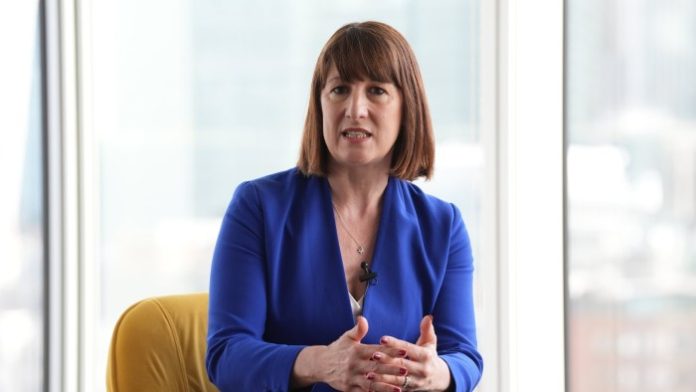Unlock the Editor’s Digest for free
Roula Khalaf, Editor of the FT, selects her favourite stories in this weekly newsletter.
The UK’s public finances swung to a smaller than expected surplus in January, as chancellor struggles to keep her Budget plans on track and kick-start the economy.
The public sector was in surplus by £15.4bn in January, £0.8bn more than last year and the highest seen in that month since 1993, the Office for National Statistics said on Friday, citing record income and capital gains tax receipts.
However, this was still smaller than the £20bn January surplus the Office for Budget Responsibility had been expecting when it last published forecasts alongside the October Budget.
The figures come as the chancellor struggles to lift growth in the UK economy while sticking to her self-imposed fiscal rules, which stipulate that current spending excluding investment be funded by tax receipts.
Her plans have been blown off course by poor economic data, including flatlining growth, that has threatened to wipe out the £9.9bn margin of error she gave herself in October.
Separate ONS figures published on Friday showed a stronger recovery in retail sales than had been expected in January, with sales volumes rising by 1.7 per cent month on month, following a 0.6 per cent fall in December.
But retail sales over the three months to January were still 0.6 per cent lower than the previous quarter.
The pound strengthened slightly on the retail sales data, but then fell back to trade 0.1 per cent lower against the dollar at $1.266.
The public finances are set to come under further strain as the government faces pressure to increase defence spending at the urging of US President Donald Trump.
The ONS said on Friday that borrowing for the financial year to January was higher than a year earlier, totalling £118.2bn — £11.8bn more than at the same point in the 2023-24 financial year and higher than the £105.4bn the OBR was expecting in October.
Alex Kerr, UK economist at the consultancy Capital Economics, said the “run of bad news” in recent economic data underlined the difficult choices the chancellor faced.
He added that as pressure mounted for the government to commit to higher defence spending, “the OBR is likely to conclude that the chancellor’s headroom against her fiscal rules has been wiped out”.
“The UK fiscal position remains a worry,” said Dennis Tatarkov, senior economist at KPMG UK.
“If the chancellor remains committed to her fiscal targets, then the Spring Statement may need to contain more tax and spending changes,” he added.
The UK fiscal outlook could yet improve between now and when the OBR produces its final report alongside the March 26 statement, meaning tax increases or harsh spending cuts prove unnecessary.
But the OBR’s initial forecast handed to the Treasury earlier this month showed Reeves’ headroom was wiped out.
A budget surplus often occurs at the start of the calendar year because self-assessed income and capital gains tax falls due at the end of January.
The ONS said receipts from these taxes of £36.2bn in January 2025 were £3.8bn more than a year earlier and the highest for January since monthly records began in 1999 — yet they still fell short of the OBR’s projections.
Kerr said the underwhelming tax receipts reflected the underlying weakness of the economy, but noted that government spending was also running slightly ahead of the OBR’s forecasts.
Darren Jones, chief secretary to the Treasury, said the government was “committed to delivering economic stability and meeting our non-negotiable fiscal rules”.
This article has been amended since initial publication to reflect the fact that the January surplus in the public finances fell short of expectations




